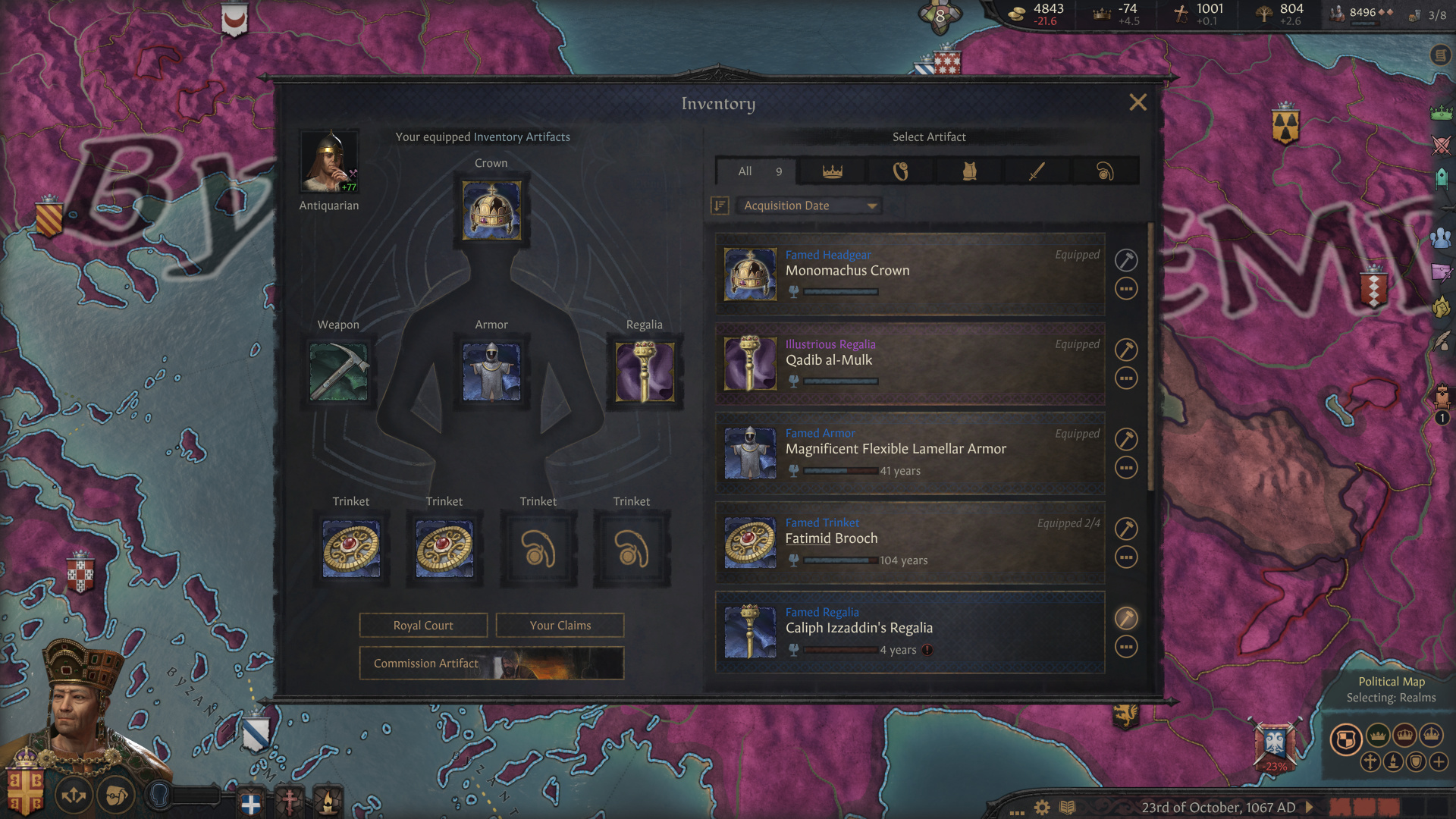
I spent my first few minutes of the game absolutely confused.
CRUSADER KINGS 2 GUIDE PDF TORRENT FREE
I came to Crusader Kings 3 because of the interesting stories I read about it - and also it’s free with Xbox Game Pass. The sheer amount of freedom in the game is a welcome aspect for veterans, but that’s not me.

Never happens if both Paranoid and Possessed Replaces Paranoid with Trusting, Content with Ambitious, Humble with Proud, Shy with Gregarious, Temperate with Gluttonous, Charitable with Greedy, Diligent with Slothful and Envious with Kind and vice versa. Never happens if treatment is terrible (−2) Mystic treatments are thus generally not recommended, aside from possibly in the case of severe diseases when experimental treatments are not an option (such as if the patient is craven). These outcomes are almost always negative. Aside from varying in terms of effectiveness, it will have some other impact – usually granting the patient some trait, although sometimes the physician or one of the patient's children might be killed instead. The mystic treatment option has a large number of different outcomes. However, once you start aiming for drastic treatments, you might as well continue until cured, because Severely Injured does not stack. It is not recommended if becoming an eunuch would end your game.

Įxperimental+drastic treatment is recommended for deadly diseases such as Rabies. Normally there's a 20% chance of the treatment being drastic, but it's bumped to 50% if the physician has any of the following: physician_good_trigger, learning at least 25 or below 15, Wroth, Arbitrary, Brave, or Ambitious. Except for the first two, they also come with the Severely Injured trait for 100–400 days, with a 70% chance of resolving well and a 30% chance of getting an Infection. That cost means a random selection from: Eunuch, Lunatic, Disfigured, One-eyed, One-handed, or One-legged. A drastic treatment means paying a high cost for significantly better health odds. If the patient selects experimental treatment, there's an additional check for whether the physician attempts a "drastic" treatment. These modifiers are for the Standard treatment option, but the other treatment options have similar splits between good and bad outcomes. or any severe disability trait ( Inbred, Incapable, Infirm, Blinded, Mangled, Maimed ).Either a mental disorder trait ( Lunatic, Possessed, Stressed, Depressed, Drunkard ),.or any learned trait ( Renowned Physician, Scholar, Erudite, Faqih, Scholarly theologian, Mastermind theologian ).1.2x physician has Renowned Physician trait.Neutral treatments, shown above as "0", merely prevent seeking treatment again for a short time. Good treatments last 2 years (5 years for Cancer, Gout, or Syphilitic). Brave or decent physician.ĥ0% chance of −1, 50% chance of −2 with additional chance of Possessed, Lunatic, Stressed or DepressedĪdult. The more experimental treatments have the best potential outcomes, but lower chance of success and worse failure modes.Īdult. Once the disease becomes manifest, the court physician will offer up to four treatment options. However, Infection replaces Severely Injured, with no net health decrease.

Opinion does not matter at this stage.Ĭourt physicians cannot treat an Infection, making Wounded a much more risky trait. The treatment tends to be better with a skilled Court Physician (high learning, Renowned Physician trait) and a patient who is Strong or Brawny. Treatments cannot improve your attributes beyond negating the penalties from disease, but the tooltips do not make this clear. The best symptom treatment restores up to 2 health and 2 of every attribute. When a character gains their first symptom, the court physician will begin treating the symptoms and suggest a preliminary diagnosis.


 0 kommentar(er)
0 kommentar(er)
